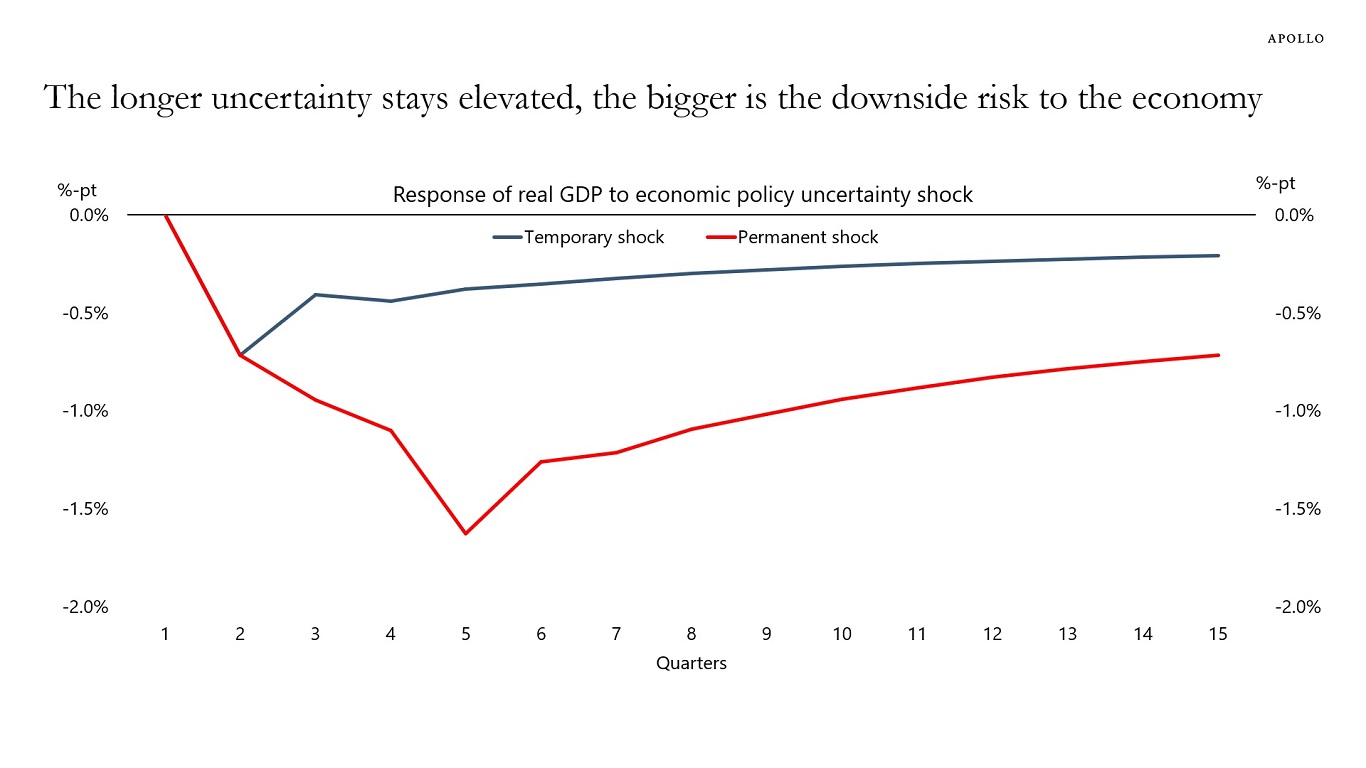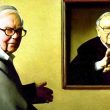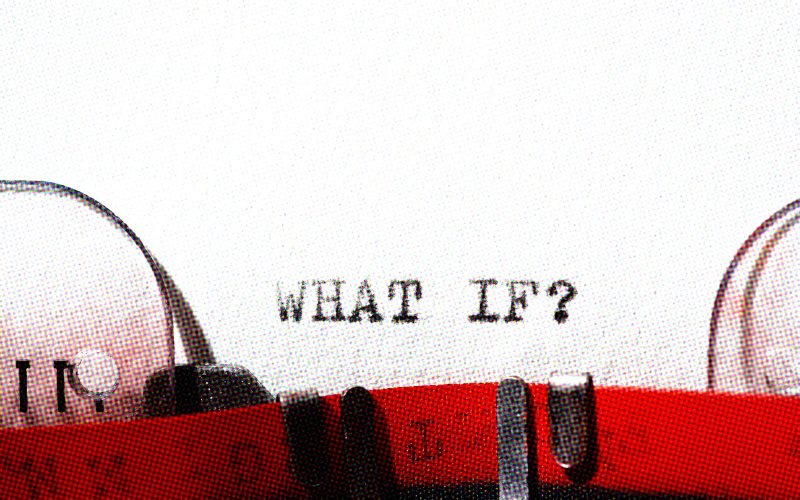Kicking Things Off With a Curveball
Torsten Sløk, Apollo’s chief economist, doesn’t waste time with pleasantries. He throws a bold idea right at us1: “Maybe the strategy is to maintain 30% tariffs on China and 10% tariffs on all other countries … then give all countries 12 months to lower non‑tariff barriers.”
Wait—what? That’s a sharp left turn into what if territory. It’s provocative. It flips the usual script on global trade. Instead of chaos, what if Trump’s tariff plan was always about controlled pressure—uncertainty with a purpose?
Before we dive deeper, Sløk reminds us: “the longer uncertainty remains elevated, the more negative its impact on the economy.” Translation? The fog of indecision costs more than the clarity of confrontation. In Sløk’s telling, Trump’s approach isn’t reckless—it’s ruthless clarity.
Tariffs: Not Just a Stick, But a Piggy Bank
Now here’s where it gets really interesting. Sløk isn’t just talking about tariffs as a bargaining chip. He’s floating a world where tariffs are permanent. That’s right—30% on China, 10% on everyone else, not as punishment, but as a revenue stream.
According to him, this could pull in a whopping $400 billion annually for U.S. taxpayers. That’s not a side effect. That’s the feature.
Sløk argues: “Extending the deadline one year would … result in an immediate decline in uncertainty, which would be positive for business planning, employment, and financial markets.” So the payoff, in his view, is twofold—money in the bank and more predictability. Sure, it’s protectionist. But if businesses know the rules, maybe they can live with them.
The Method Behind the Mayhem?
This is where Sløk shifts from analysis to speculation. What if Trump’s tariff game wasn’t all chaos and chest-thumping—but deliberate escalation followed by a calculated offramp?
Picture this: the White House draws a hard line, then throws the world a lifeline—12 months to clean up non-tariff messes. Sløk’s take? That kind of move could recast the narrative: Trump isn’t just the disruptor; he’s the dealmaker with a deadline.
“Maybe the administration has outsmarted all of us.” Mic-drop?
It’s not a fanboy salute—it’s more like, “what if we’ve been looking at this all wrong?”
The Numbers Don’t Lie: Uncertainty Hurts
Sløk doesn’t stop at strategy. He brings receipts.
He points to a structural VAR model showing that spikes in economic policy uncertainty shave 0.2 percentage points off real GDP. That’s not theoretical—it’s measurable damage. His chart backs it up: a sharp hit in Q1, then a tapering effect as clarity returns.
So what’s worse for the economy—temporary chaos or a steady (if painful) new normal?
 Note: Impulse response from the VAR model with variables log (Real GDP) and log (Economic Policy Uncertainty Index). One standard deviation shock to Economic policy uncertainty leads to a 0.2% point decline in Real GDP. Temporary shock is defined as four standard deviation shock in Q1 and permanent shock is defined as four standard deviation in Q1, three standard deviation in Q2, two standard deviation in Q3 and one standard deviation in Q4. Sources: Bloomberg, Apollo Chief Economist
Note: Impulse response from the VAR model with variables log (Real GDP) and log (Economic Policy Uncertainty Index). One standard deviation shock to Economic policy uncertainty leads to a 0.2% point decline in Real GDP. Temporary shock is defined as four standard deviation shock in Q1 and permanent shock is defined as four standard deviation in Q1, three standard deviation in Q2, two standard deviation in Q3 and one standard deviation in Q4. Sources: Bloomberg, Apollo Chief Economist
Genius or Gamble?
There’s no doubt: Sløk’s argument cuts deep. He reframes the whole trade war not as random aggression, but as certainty-through-pressure, possibly even revenue optimization.
But it’s a razor’s edge. Permanent tariffs could easily spark retaliation, raise prices, and mess with global supply chains. Sure, $400 billion sounds great, but what happens when consumers start feeling it at the checkout aisle? Or when companies stall on investment?
Final Take: Is There a Plan After All?
Sløk never says Trump’s approach is brilliant. But he does ask us to consider the possibility that there’s a real strategy behind the tweets. A plan that, while controversial, actually values clarity over chaos—even if that clarity looks a lot like confrontation.
So, has Trump really outsmarted everyone? That’s the question Sløk leaves hanging. Whether it’s clever policy or high-stakes theater, it’s forced us to see the game from a different angle—and maybe, just maybe, take it more seriously than we thought.
Footnotes:
Sløk, Torsten. "Has Trump Outsmarted Everyone on Tariffs? - Apollo Academy." Apollo Academy, 22 June 2025.













